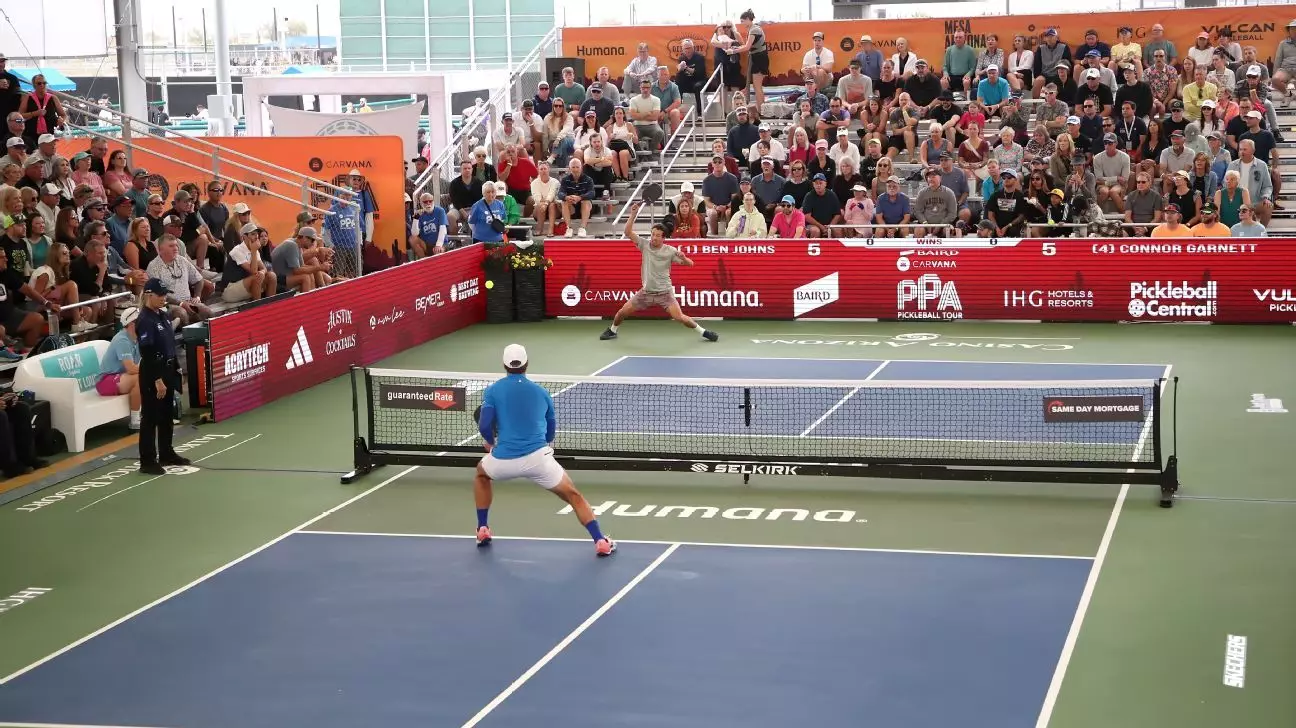For years, professional pickleball players navigated their careers with limited collective voice, often at the mercy of league structures that prioritized business interests over athlete welfare. Recent developments, however, signal a seismic shift: the formation of the World Pickleball Players Association (WPPA). This landmark move represents more than just a new organizational body; it embodies a growing awareness among players that influence must rest within their own hands. This emergence reveals an understanding that athlete empowerment is not merely desirable—it’s essential for the sport’s sustainable future. By uniting these talented athletes under one umbrella, the WPPA paves the way for a more equitable and transparent playing field, signaling a new era of player advocacy.
Driving Forces Behind Player Organization
The establishment of the WPPA stems from undeniable frustrations among professional players. Historically, decisions affecting their careers—such as rankings, safety protocols, scheduling, and compensation—were often dictated by tournament organizers or a fragmented series of leagues. Players felt their voices were muffled, their concerns unheard, and their well-being compromised. The recent consolidation among pro leagues, culminating in the creation of the United Pickleball Association, catalyzed the recognition that unity among players could strengthen their position. Collin Johns, a prominent player and board member, stressed that this move isn’t adversarial; rather, it is about setting minimum standards that ensure fairness, regardless of individual rankings. A genuine desire exists among athletes to foster collaboration, not conflict, underscoring their commitment to elevating the sport as a whole.
Redefining Power Dynamics in Pickleball
The WPPA introduces a paradigm shift by bringing professionalism and independence to the sport’s players. It functions similarly to associations like the Professional Tennis Players Association, offering players a credible voice without fundamentally challenging existing structures—at least initially. Unlike traditional unions such as the MLBPA or NFLPA, which have legal authority and collective bargaining power, the WPPA operates primarily as an advocacy group. This strategic positioning allows players to influence policies without the complexities or adversarial tone of a union. Given that most pickleball players are classified as independent contractors, this organizational form respects their current employment status while offering a platform to address critical issues like ranking systems and safety standards.
Addressing Core Concerns: From Rankings to Safety
A central motivation for creating the WPPA is to tackle long-standing issues that impact players’ careers and livelihoods. The ranking system, often a source of controversy, exemplifies the kind of operational reform players hope to implement. They seek a more transparent and fair approach—one that recognizes consistent effort across the spectrum of talent, from top-ranked stars to emerging players. Safety protocols and scheduling policies also demand attention, especially as the sport’s popularity surges and tournament schedules expand. Players acknowledge that meaningful change begins with dialogue and recognition, emphasizing that their demands are reasonable and focused on consistency and fairness. The hope is that by establishing baseline standards, the sport’s integrity and appeal will only grow stronger.
Support from the Broader Sports Culture
The formation of the WPPA has garnered support beyond the pickleball community. The Professional Tennis Players Association (PTPA), for instance, issued a supportive statement, recognizing the importance of athlete-led representation. This endorsement underscores a broader trend within sports: athletes increasingly understand that they must advocate for their interests if they want sustained control over their careers and health. The endorsement hints at a future where player associations become integral to the sport’s governance, fostering a culture where athlete well-being and voice are prioritized over commercial interests alone.
Implications for the Future of Pickleball
The creation of the WPPA marks a pivotal moment—not just for pickleball but for the evolution of sports athlete governance. This movement signifies that players are willing to organize and advocate for fairness, safety, and transparency, reinforcing the sport’s legitimacy and appeal. It’s a testament to how rapidly pickleball is growing; athletes are now recognizing that their collective strength can shape a more promising future. With player advocacy gaining momentum, the sport faces an exciting trajectory, where athlete interests are central to strategic decisions and organizational improvements. As pickleball continues its ascent, the WPPA’s rise signifies that the sport’s players are committed to guiding that journey—not just as participants, but as true stakeholders.

